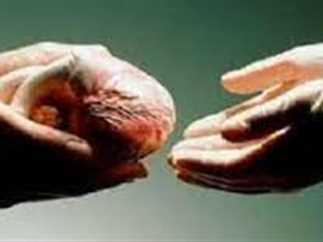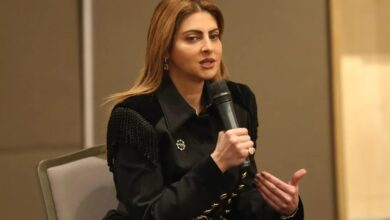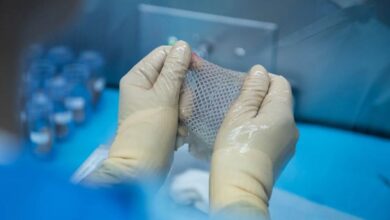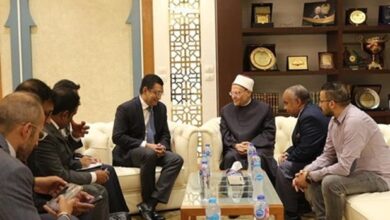
Egypt’s Dar Al Iftaa, on its Facebook page, permitted organ donation after death to be used in the treatment of patients, saying: “Treatment by transferring and transplanting a human organ from a deceased person to a living person in need is permissible according to Sharia, if conditions are met.”
It is permissible away from manipulation and turning the process into a trade where “spare parts” are sold and bought, it added.
Organ donation in Egypt
A person may document his or her desire to donate their organs after death with the real estate registry.
Steps for documenting organ donation after death are as follows:
-Go to the nearest real estate agency.
-Submit copies of the applicant’s national ID card for organ donation.
-A personal signature on an acknowledgment that the organ donation is without benefit or a financial return.
-Paying the real estate declaration fees for organ donation after death.
Post-mortem organ donation procedures
There are some conditions that must be met by a person applying for organ donation after death, which includes non-genital organs, such as: liver, kidneys, heart, pancreas, small intestine, and lungs, as well as removable tissues, namely skin, heart valves, blood vessels, and bone.
The conditions for organ donation are as follows:
-An acknowledgment of organ donation must include the donated part of the person’s body.
-The declaration must include all the personal data of the donor based on the national ID card, including the name of the donor, their nationality, relationship to the receiver of donated organ. The name, nationality and kinship of the receiver are required as well.
-Organ donation shall be without any material return or or in-kind grant, and the donor, their descendants, relatives, or any of their heirs shall not gain any material or in-kind benefit from the transplant.
-The donor must be fully qualified and not older than 50 years old.
Organ donation locations
The conditions for organ donation also included that the donor and the receiver be Egyptian, with the exception of:
-The spouses if one of them is Egyptian and the other is a foreigner, provided that at least three years have passed from the marriage contract.
-Organ donation among foreigners of the same nationality is allowed, provided that a written approval is submitted to that from the embassy of the country to which the donor belongs and to be approved by the Foreign Ministry.
-Organ donation between children of an Egyptian mother and a foreign father or vice versa is allowed, provided that the age of the donor child is not less than 18 years old. The approval of the three parties and their signatures are required for approval.
Dar Al Iftaa opinion on organ donation
The conditions for organ donation after death, according to what was published by Dar Al Iftaa, through its account on Facebook, are as follows:
-One of the prerequisites for organ donation is to verify the death of the donor, when their heart, breathing and all the functions of the brain have stopped irreversibly, so that their soul has left the body completely.
-The mechanical movement of some organs by means of ventilators does not invalidate death. This verification is only based on the testimony of doctors who approve the death of the donor.
Organ donation in Islam
The fatwa said that what the Muslim scholars mentioned about the signs of death, such as the relaxation of the legs and others, is based on monitoring, tracking and medical extrapolation in their times, and modern medicine has proven that these are symptoms of the final cessation of all brain.
If doctors are certain about the cessation of brain functions, it is considered real death, after which it is permissible to donate organs from the dead to the living.
Actress Elham Shaheen, announced through a video she published, the documentation of a power of attorney in the real estate registry for organ donation after death, explaining that she recommended her brothers to do so.
Khaled Omran, Secretary of the Fatwa at Dar Al Iftaa, commented on Shaheen’s documentation, saying that it is an ongoing charity that others can benefit from and is rewarded by God.
He explained in a telephone interview on the “Tahrir Hall” program, broadcast on Sada al-Balad channel, that documenting the will to donate organs in the real estate registry prevents manipulation of it later.




